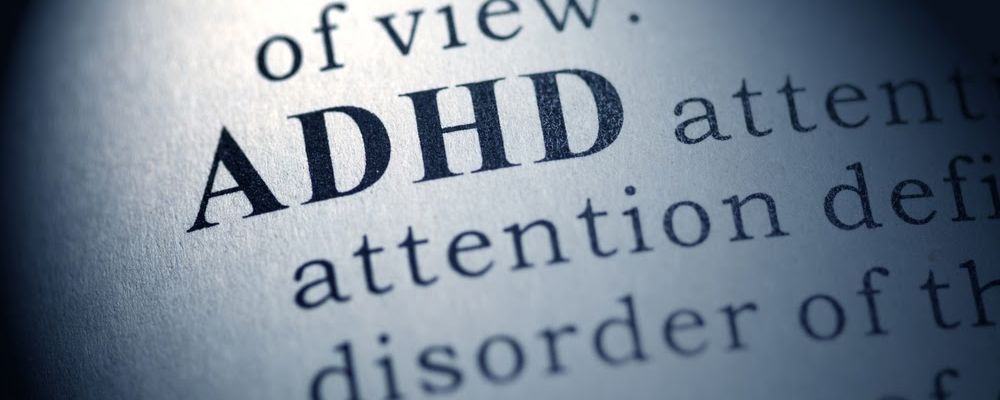
Whether it’s paying attention during a training session or keeping bills organized at home, most people have some degree of difficulty with focus, concentration and organization. However, Attention Deficit Hyperactivity Disorder (ADHD) is more than trouble attending during isolated moments or situations.
ADHD is a pervasive difficulty with attention, impulsivity and hyperactivity that persists across all domains of a person’s life. It can affect work, school, friendships and home life. Although the symptoms of ADHD can be debilitating and difficult to manage, and while there is no cure, treatment options are available to help sufferer’s manage symptoms and live a successful life.
What Is Attention Deficit Hyperactivity Disorder or ADHD?
ADHD is a disorder of executive functioning in which a person has impaired attention that manifests in different ways across the domains of concentration, impulsivity and hyperactivity. It is the most common disorder of childhood, although the disorder also affects adults. Children diagnosed with ADHD will grow up to be adults with ADHD. However, with effective treatment, many adults feel that they out-grew ADHD, but in reality, they have developed successful coping strategies to manage the symptoms.
Those struggling with inattention experience trouble focusing and concentrating in most areas of their life, including home, school and work. These symptoms can range from mild to severe, and affect a person’s ability to learn, interact with others and manage the tasks of everyday life.
ADHD can impact a person’s ability to attend in different situations and certain tasks are particularly difficult. Some examples of these difficulties include:
- Completing a task or project
- Understanding instructions
- Ability to follow each step when given directions
- Remembering what needs to be done
- Organizing desk, locker, car
- Keeping a household running
- Staying on top of bills or assignments
- Managing several tasks at once
- Being ready and on time for events
- Multi-tasking
- Following through on expectations
- Being able to sit for long periods of time
- Managing finances
- Navigating social situations and relationships
ADHD is pervasive, which means that it affects every aspect of a person’s life as the above examples illustrate. What are the symptoms of ADHD?
Symptoms
People with attention deficit hyperactivity disorder tend to exhibit some or all of the symptoms of ADHD, which is broken into three categories, attention, impulsivity and hyperactivity. Unlike other disorders, each person can have symptoms in some or all of the categories making the presentation in each individual different or specific to the individual. Most people have symptoms of inattention, but the actual presentation can vary from individual to individual. Below are the symptoms of each category:

Inattention
- Failure to give close attention to details or makes careless mistakes
- Difficulty sustaining attention in tasks or play activities
- Doesn’t seem to listen when spoken to directly
- Doesn’t follow-through on instructions and fails to complete tasks
- Difficulty organizing tasks and activities
- Avoids or is reluctant to do activities that require sustained effort
- Often loses things needed to complete tasks
- Easily distracted by irrelevant stimuli
- Forgetful in daily activities
Hyperactivity
- Fidgets with hands or feet, squirms in seat
- Leaves seat when expected to remain seated
- Runs about or climbs excessively
- Difficulty playing or engaging in activities quietly
- “On-the-go” or acts as if “driven by a motor”
- Talks excessively
Impulsivity
- Blurts out answers before questions have been completed
- Difficulty waiting turn
- Interrupts or intrudes on others
It is important to note that these symptoms can also be present in other mental disorders. For instance, difficulty concentrating is often seen in depression. Other disorders that may have overlapping symptoms with ADHD include: anxiety, depression, mood disorders, pervasive developmental disorders, psychotic disorders, personality disorders, and substance use disorders. The defining factor is the persistent and pervasive nature of ADHD in which symptoms of inattention, impulsivity and hyperactivity do not remit when other disorders, such as depression, remit.
Causes
Scientists have not discovered a cause for ADHD, although several factors have been identified in those diagnosed with ADHD.
Genetic: Research indicates that there may be a genetic component to attentional issues. People with ADHD usually have a relative who also has the disorder suggesting a strong genetic component.
Birth Factors: Other suspected causes include being born prematurely, smoking or alcohol use during gestation, and extreme maternal stress during pregnancy. The exact mechanism that may be at play is yet unknown.
Brain Injury: Although not all brain injuries result in ADHD, an injury to the brain has been linked to subsequent diagnoses of ADHD.
Treatments
While there is no cure for ADHD, early identification and diagnosis allows for appropriate and effective treatment to mediate the symptoms and afford sufferer’s the ability to effectively manage their symptoms and function successfully in their lives. The most effective treatment options usually include both behavior therapy and medication management, together.
Behavior Therapy: Behavior Therapy is an evidence-based therapy that focuses on the management of attention, impulsive and hyperactive symptoms. With children, treatment involves teaching parents and teachers to provide appropriate structure to manage symptoms. Structure can be implemented with clear expectations regarding behavior with appropriate and natural consequences for undesired behaviors. Helping caregivers to provide positive feedback for desired behaviors helps children learn to control their behavior and make positive choices.
With adults, the focus of behavior therapy is to develop strategies that allow for the development of more structure and routines that lead to increased organization and ability to manage their symptoms.

Medication: Stimulant medications, such as methylphenidate and amphetamines, can be effective in the treatment of ADHD, even in children. Atomoxetine and guanfacine, both non-stimulant medications, have also been shown to be effective treatments for ADHD.
Final Thoughts
Although ADHD is an all-consuming disorder that affects every aspect of a person’s life, causing difficulty at home, school, work and with friends, treatments can help children and adults to cope effectively with the disorder. Using strategies to develop structure, routines and positive methods of compensating can allow individuals to live happy and successful lives.



